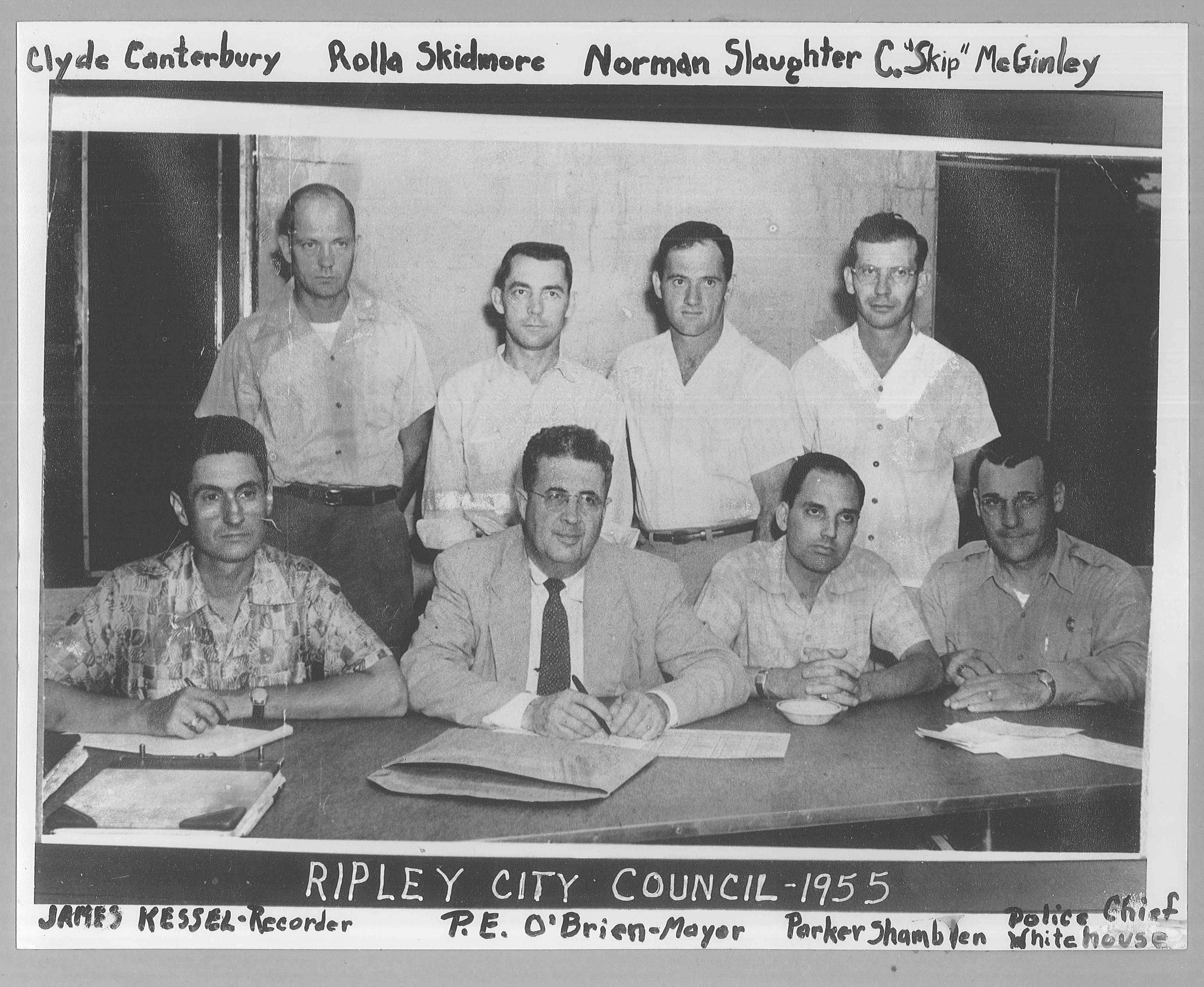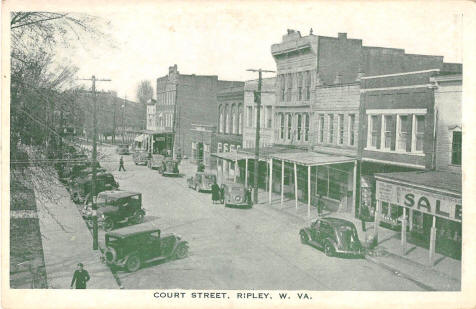Ripley was originally owned and settled
by William, John, and Lewis Rodgers who had received a grant of 400
acres in 1768 where "Sycamore Creek joins Big Mill Creek" (the current
site of Ripley). The land was later sold to Jacob and Ann Starcher, most
probably in 1803. More and more settlers began moving into the area. The
Starchers donated eight acres of land to the county, two acres for the
location of the county courthouse and jail, and six for the general use
of the new county (a public school and a cemetery were later located on
the land). Jacob Starcher erected a grist mill in 1824 and laid
out the town in 1830, naming it in honor of Harry Ripley, a young
minister who was to be married, but drowned in Mill Creek, believed to
have been about three miles south of town, shortly before the wedding
ceremony was to take place.
When Jackson County was formed in 1831,
the citizens could not decide where to locate the
county seat. People living along the Ohio River near
Ravenswood favored that location. Residents living
farther inland objected. The Virginia General
Assembly appointed an independent commission to make
the final decision and Ripley was chosen. On
December 5, 1832, Jacob Starcher petitioned the
General Assembly to give the town a name and grant a
charter to govern it. The request was granted
fourteen days later on December 19, 1832. The
charter officially designated the town as Ripley in
honor of the late minister.


Trustees would govern the town until 1852 when Ripley
was incorporated. Voters then elected a council and mayor. The Honorable
Clermont E. Thaw was elected as Ripley’s first mayor.
The town's
post office was established January 31, 1832, and was named Jackson
Courthouse. In the years that followed the town was referred to both as
Jackson Courthouse and Ripley. On September 15, 1897 the name of the
post office was changed to Ripley.
During the Civil War, Ripley
remained under control of the Union except for a brief incursion by
Confederate General Albert G. Jenkins in September 1862.
On December
16, 1897 the last public hanging in West Virginia was carried out in
Ripley. John F. Morgan was put to death for the murders of Mrs. Chloe
Greene and her two children. Morgan was hanged before a large crowd of
spectators from Jackson and surrounding counties. The spectacle received
national news coverage and led to the West Virginia Legislature banning
public executions.
On July 4, 2002, President George W. Bush visited
Ripley and gave a public speech from the Courthouse steps.
**Read More About Ripley's Historic District Click Here**
**To
view more Ripley Historic Photos Click Here**